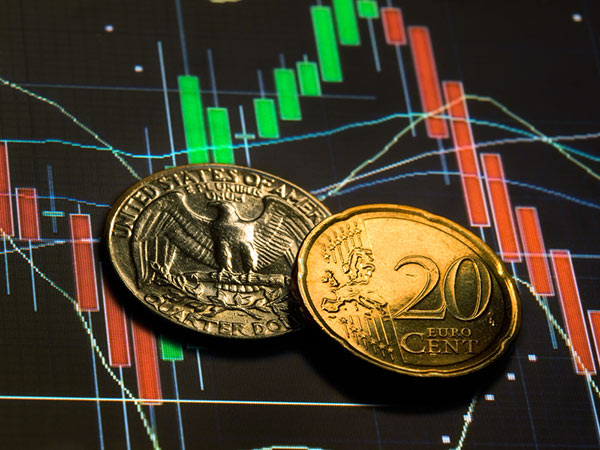The Euro to US Dollar (EUR/USD) exchange rate strengthened from a multi-year low on Thursday as the European Commission positively revised its economic growth forecast for the year ahead.
Data released early in the session supported the Euro as it showed that factory orders in Germany rallied strongly in the first month of the year, suggesting that the Eurozone’s largest economy is recovering from last year’s weakness.
Is a Eurozone Recovery on the Cards?
Factory orders jumped by 4.2% in December from November and were up by 3.4% on a year on year basis. The rise marks the strongest improvement recorded in six months and eases concerns over the health of the Eurozone economy.
The strong data adds to positive figures released in other Eurozone economies. In Spain, retail sales reached their best pace of growth in 11 years and PMI data released earlier this week came in positively.
Adding to signs that the Eurozone could be on the verge of a recovery was a report released by the European Commission (EC). The EC upgraded its growth forecasts for the 19-member currency bloc saying that weak oil prices and the introduction of the €1.1 trillion monetary easing programme by the European Central Bank will provide a boost to the economy and prevent the region from sliding back into recession.
The EC now expects the Eurozone economy to expand by 1.3% in 2015 and by 1.9% in 2016.
ECB announcement Blackmail?
Yesterday the markets were growing optimistic that the New Greek government could come to an agreement with its creditors in the Troika.
Today, however, those hopes were dashed as the European Central Bank took the markets by surprise by announcing that it would no longer accept Greek bonds as collateral for lending, shifting the burden on to Greece’s central bank to provide additional liquidity for its lenders and increasing pressure on Athens.
The standoff between the two sides looks set to worsen as Germany’s central bank chief Jens Weidmann appears to be up for a fight with the Greek finance minister. He said that it was Greece’s decision to stop cooperating with Europe’s debt inspectors, so they must learn to live with the consequences of their actions.
The ECB announcement was likely put forward by the Germans and to many observers it looks like clear-cut blackmail.
‘Greece does not aim to blackmail anyone but will not be blackmailed either. The ECB’s decision is an act of political pressure to quickly reach a deal,’ said the Greek government.
The US Dollar could recover lost ground if the latest US balance of trade and jobless claims data come in strongly.



